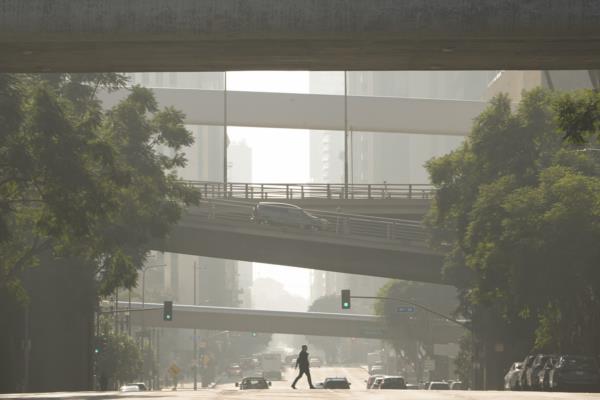
The Environmental Protection Agency (EPA) has approved two requests from California to enforce stringent standards for vehicle emissions. This includes a rule that aims to prohibit the sale of new gasoline-powered cars in the state by 2035. The incoming Trump administration is expected to attempt to reverse this action.
The California rule surpasses a federal rule implemented this year, which tightens emissions standards but does not mandate the sale of electric vehicles. The EPA stated that opponents of the waivers failed to demonstrate how the electric vehicle rule or a separate measure on heavy-duty vehicles contradicted the federal Clean Air Act.
EPA Administrator Michael Regan emphasized California's authority to request waivers to safeguard residents from harmful air pollution originating from cars and trucks. The EPA's decision aligns with its commitment to collaborate with states to reduce emissions and address the climate change threat.



The new waiver is significant not only for California but also for over a dozen other states that adhere to its leading standards on vehicle emissions. However, the waiver is likely to face challenges under the new administration, with President-elect Donald Trump planning to revoke all California waivers as part of a pro-industry strategy.
In 2019, Trump rescinded California's emissions authority, only to have it reinstated by the Biden EPA in 2022. Any attempts by the new administration to reverse this decision are expected to trigger legal disputes that could delay action.
California Governor Gavin Newsom has praised the advanced clean-cars rule as a key achievement in the state's climate policy leadership. Major automakers support the state standards, with Newsom highlighting California's progress in meeting goals ahead of schedule.
Environmental groups have welcomed the new waiver, citing its importance in reducing pollution and household expenses related to combustion fuels. The gradual transition to zero-emissions vehicle models is projected to improve air quality, lower costs, and expand California's clean energy workforce.
The EPA's move coincides with the Supreme Court's decision to review a business-backed appeal challenging a previous California waiver granted by the Biden administration. The appeal questions whether fuel producers have the legal standing to challenge the federal waiver, which allows California to set stricter emissions limits than the national standard.
While major automakers are already complying with California's emission standards, fuel producers argue that the appellate decision could hinder future challenges to administrative actions. The Supreme Court's review will focus on the issue of legal standing for fuel producers, rather than the waiver itself.







